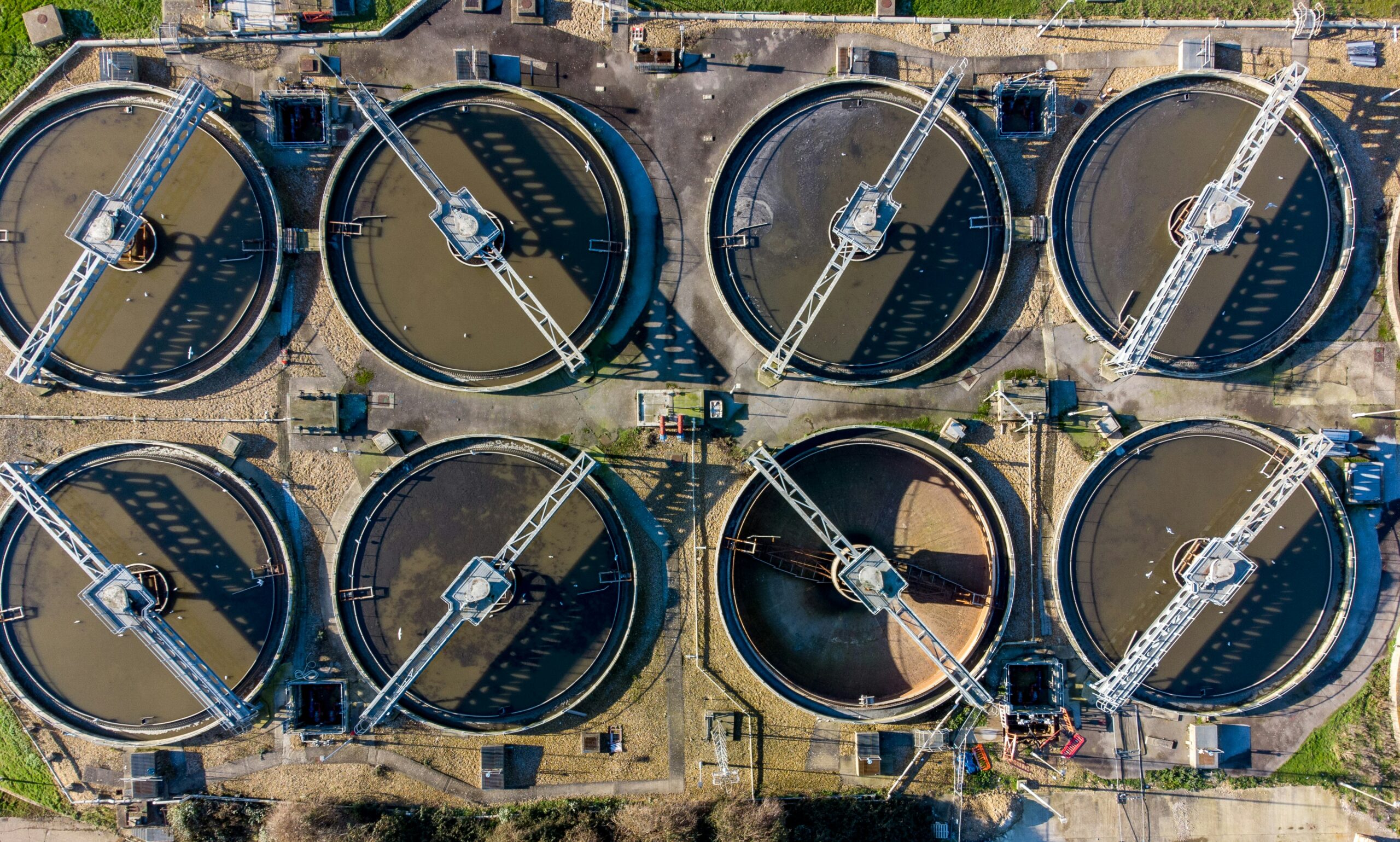Image description: Aerial photo of a water treatment works. Photo by Bob Brewer on Unsplash
Castle Water, a bidder for Thames Water, has said it would inject at least an extra £1bn above current rival proposals into the debt-laded utility company.
Thames Water, which has 16 million customers, has been at the centre of an environmental scandal in Britain where it has been fined more than 100 million pounds for sewage spills, while debts of 20 billion pounds have left it close to collapse.
Castle Water was one of the companies that had approached Thames about a possible deal earlier this year, but its initial bid was rejected in favour of proposals by investment group KKR, which later pulled out of the bidding.
The utility firm has now returned with an improved proposal for Thames, which is in advanced talks with creditors and regulators to secure funding that would stave off nationalisation. It would be offering a cash injection of at least £1 billion above the current proposals, backed by the property group of the billionaire Pears family, and vows to create up to 2,000 jobs at Thames Water if it gains control of the struggling supplier. Their offer also includes commitments to repair and expand capacity in waste treatment plants to reduce pollution.
Castle Water is co-owned by Conservative Party treasurer Graham Edwards and says it is the largest independent water retailer in the UK. Its chief John Reynolds said in an interview with The Times that he was “confident” the turnaround plan would solve pollution problems at Thames, and he believes discussions between Thames and its creditors and investors had stalled due to the nature of its proposals.
However, a spokesman for the creditors countered it was “simply not true that discussions have stalled”. The consortium is hoping to finalise a rescue deal before Christmas, which includes seeing 25% of their debts written off and more than £4bn of new cash injected, but will require years of leniency on fines for pollution incidents. If Thames Water collapses into administration, those debts could be written off by a greater amount.
Economist and infrastructure expert Prof Dieter Helm argues the best way to get a fresh start for Thames is through a government-supervised administration, which would receive a much bigger debt write-off than the 25% the current lenders are proposing. However, government has appeared keen to avoid a Special Administration Regime (SAR) as although the public purse would eventually be reimbursed through a sale, it reportedly could cost billions in the short to medium term.
